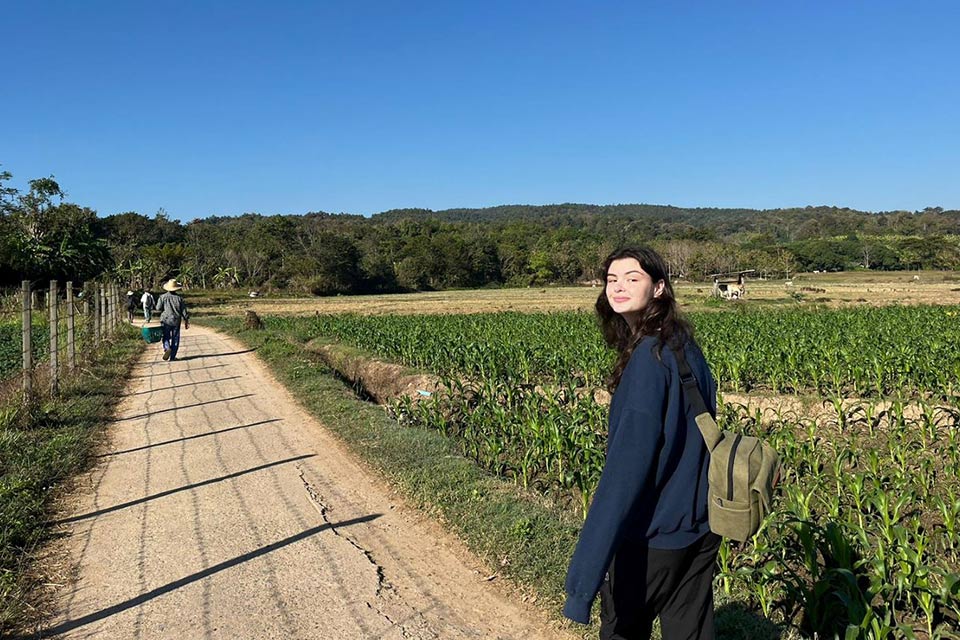Brandeis University Admissions
An Unforgettable Journey: Studying Abroad in Thailand

Hannah L. ’25
(she/her)
When Hannah L. ’25 arrived in Thailand for her spring 2024 study abroad semester, she was eager to step outside her comfort zone and fully immerse herself in a new culture.
Brandeis students have more than 200 study abroad program opportunities to explore in 50 different countries. For Hannah, an Anthropology major with a minor in Women's, Gender, and Sexuality Studies, studying in Thailand was the perfect way to connect her academic interests with real-world experiences. Through coursework, independent research, and hands-on learning in local communities, she deepened her understanding of cultural diversity, human rights and sustainable development.
Want to know more about Hannah’s journey? Take it from her.
What inspired you to study abroad?
I've always been drawn to travel and learning through experience. I wanted a program that would push me to adapt and engage meaningfully with local communities. The Development Studies and Internship program in Chiang Mai (MSID) offered exactly that — coursework, fieldwork, and an internship that emphasized ethical engagement.
How did you decide that Thailand was the destination for you?
Thailand has long fascinated me — its landscapes, culture, and rich Buddhist traditions. I was also eager to study human rights and development in a non-Western context. The MSID program’s focus on social change and sustainable development aligned perfectly with my academic interests.
What did you study during your semester abroad?
As an Anthropology major at Brandeis, my studies abroad blended anthropology, human rights and development. I used cultural relativism to approach each experience with an open mind, learning about religion, diverse communities and social movements. Visiting rural and Indigenous villages deepened my understanding of Thailand’s cultural mosaic, and my independent research focused on aging in modern Thailand and student activism.
I also gained insight into human rights and sustainable development while working with an NGO — valuable experience for my future career in the non-profit sector.
What was your most memorable experience during your trip?
Celebrating Songkran, the Thai New Year, was unforgettable. The entire city of Chiang Mai transformed into a giant water fight, with people throwing water, dancing, and celebrating together. It was the most joyful, communal experience I’ve ever had.
What did a typical day look like?
Mornings often started with Thai class, followed by lectures or site visits to villages and NGOs. Afternoons were spent exploring the city, enjoying street food, or hopping in a Rot Daeng (red truck) to a new neighborhood. Evenings were for bonding with friends over dinner, night markets, or studying at a café.
Did you face any challenges during your semester abroad?
The language barrier was tough at first, but learning Thai helped immensely. Adjusting to the climate, especially during burning season, was also a challenge. I had to balance my excitement with the need for rest. Navigating my identity as a Jewish, white woman in a Buddhist-majority country also led to moments of both connection and self-reflection.
What is your biggest takeaway from this experience?
This experience reinforced my passion for cross-cultural learning and deepened my understanding of sustainable development and human rights. More than anything, it taught me the value of stepping into the unfamiliar — not just to explore, but to listen, adapt and grow.
“I wanted every experience to be new, and Thailand gave me that and more — challenging me, teaching me, and welcoming me in ways I’ll never forget.”
Hannah L. ’25

